Remember when I wrote this piece three years ago? I made what I think was a pretty convincing case on a dubious data set that political popularity in Canada correlated inversely with time in office. The Angus Reid poll looked like this:
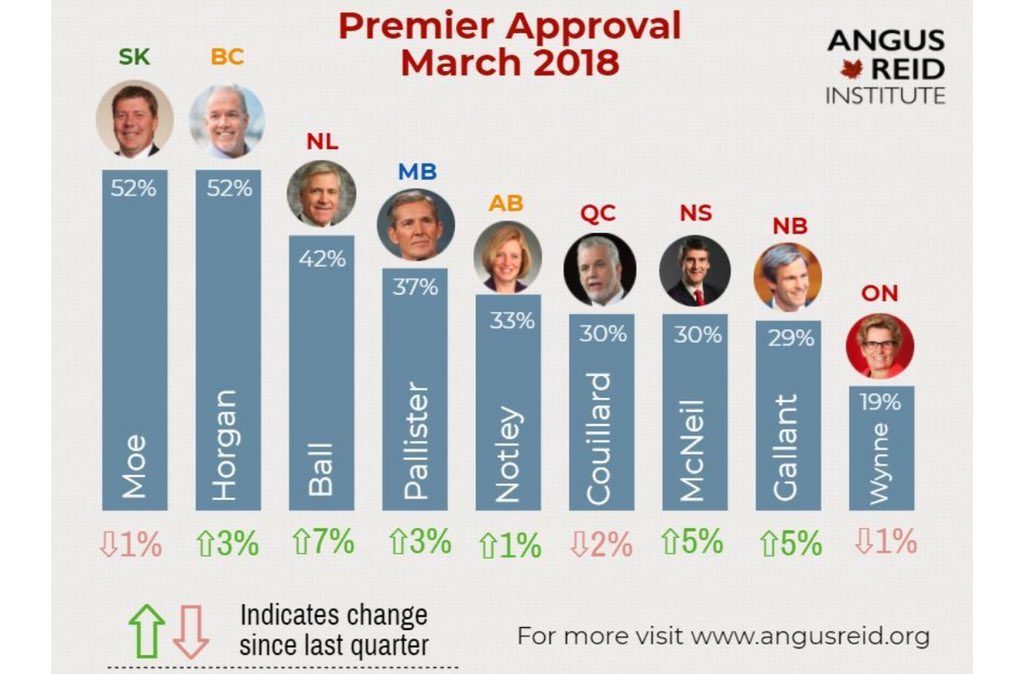
And I graphed popularity vs. days in office, and found a pretty strong correlation (R = 0.92!) suggesting a direct inverse relationship. The way to be popular as a Premier is to be new on the job:
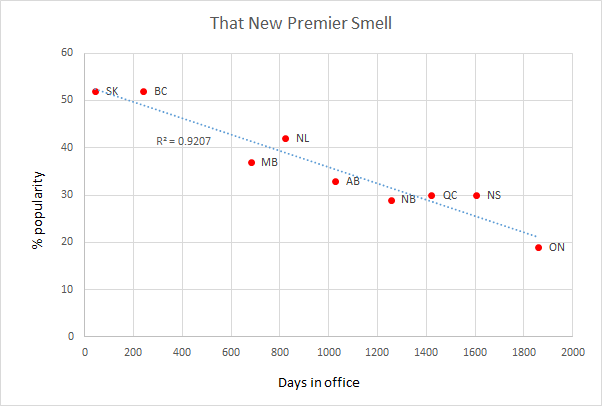
What a difference time makes. Three years and a raft of elections later, the Angus Reid folks did the poll again, and here are the results: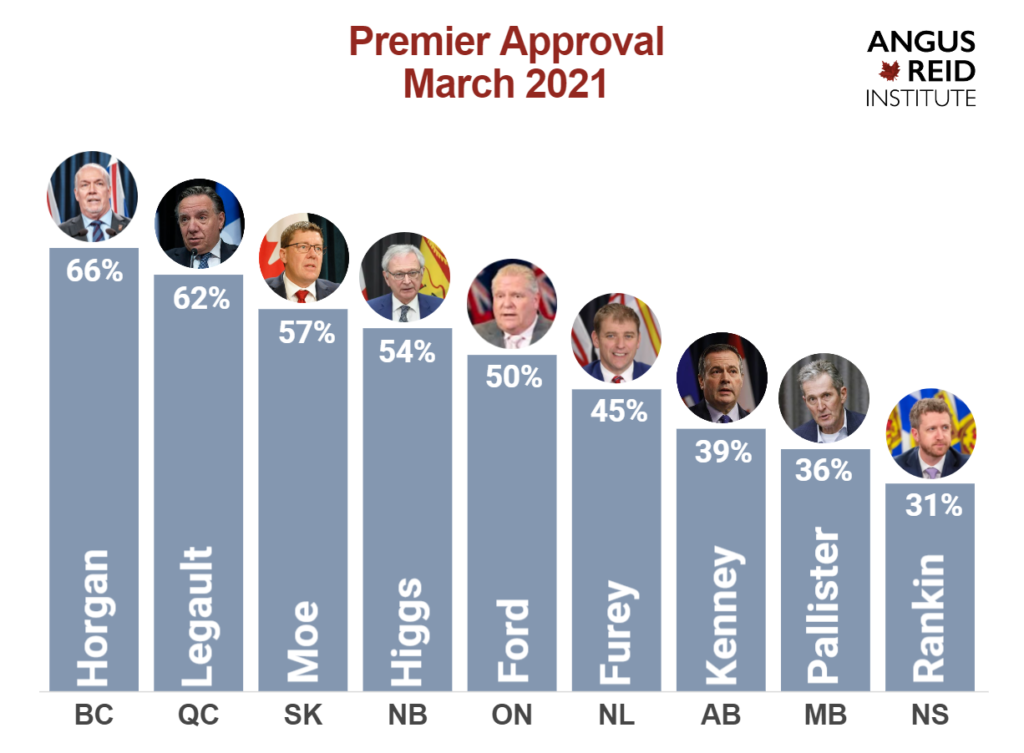
Aside from the obvious (Horgan still on top; doesn’t matter if you are a Boomer or GenX as long as you are a white guy; PEI still doesn’t matter), I am stumped by trying to find easy single-cause narratives here. The one from three years ago certainly doesn’t work:
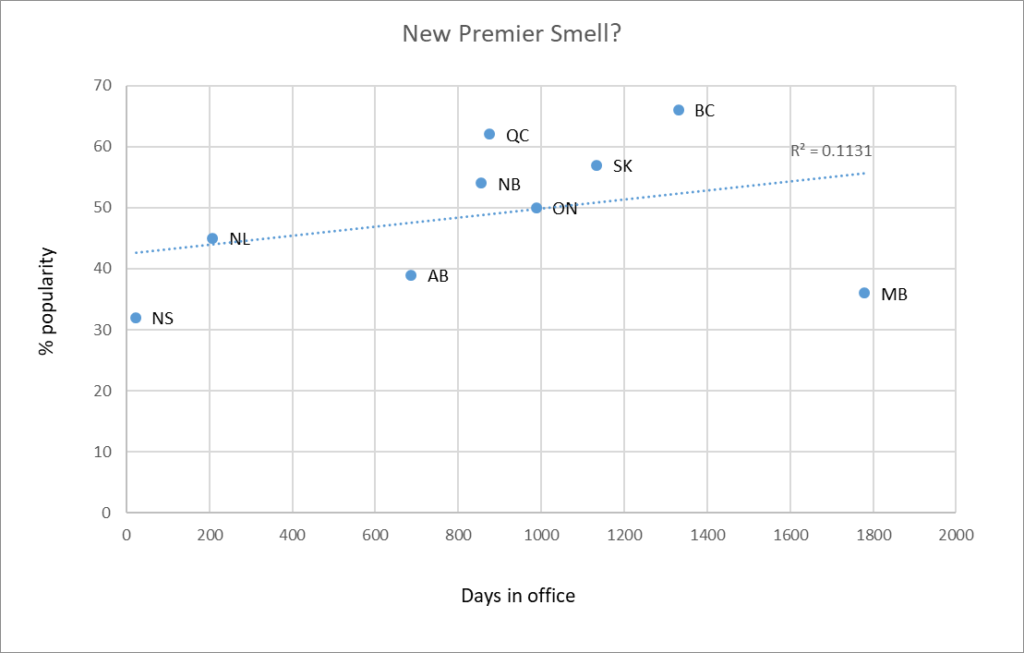
The correlation looks bad. If we take the anomalous Premier Rankin (who was very recently selected to lead a party that has been in power for a few decades, but has yet to introduce himself to the electorate) and the graph is as close to a random distribution as I can draw:
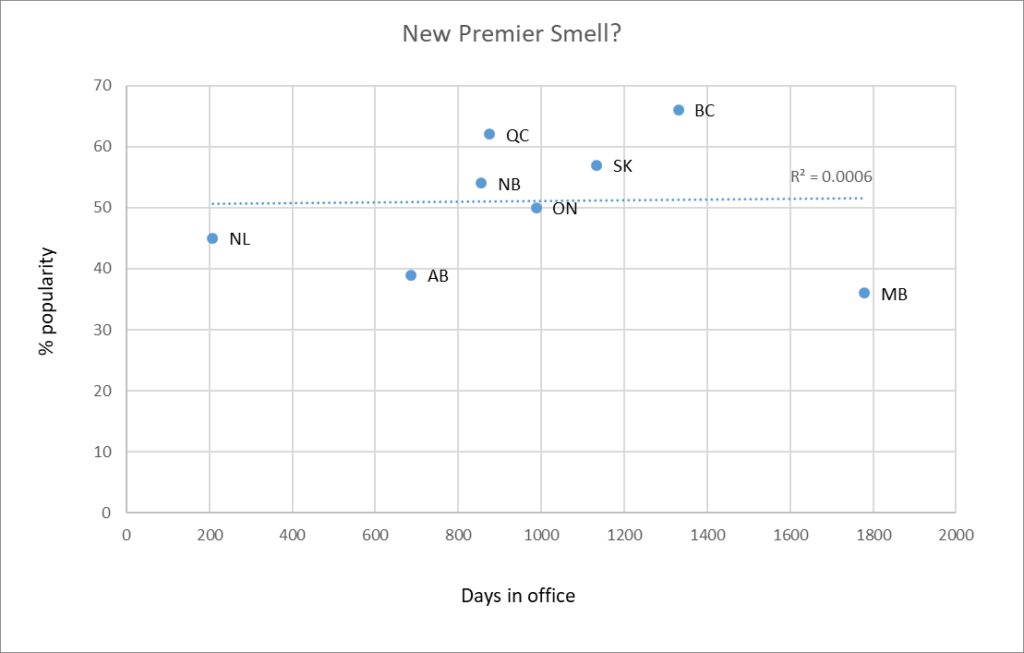
So my certainty from three years ago was misplaced. I was wrong.
But, hey, it’s Pandemic time, and surely that throws everything else aside. So we can safely assume that the most important public health and economic emergency of our generation must have thrown the numbers for a loop. Surely Premier popularity must correlate with their ability to manage the Pandemic and keep the voters safe, right?
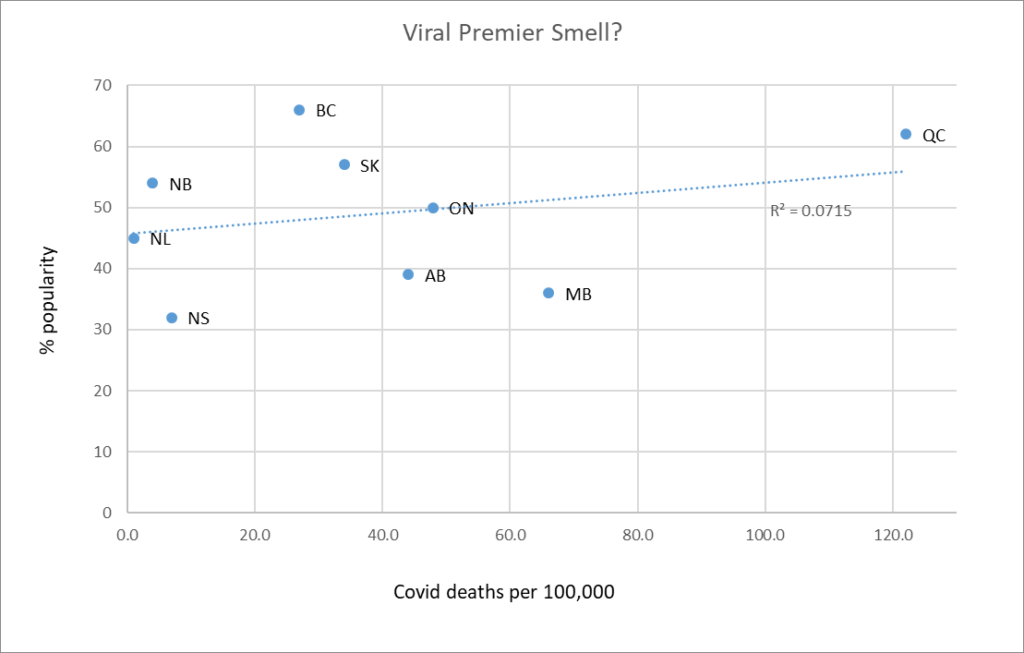
Nope. Looks like the only thing I have reinforced here is that I really know nothing about politics. As you were.